Are you wondering if Dubai’s property market is still a smart investment?
The city has been booming – attracting people from across the globe – but predictions are shifting, and it’s crucial to understand what lies ahead. Many believe the rapid growth of recent years will slow, but that doesn’t mean opportunities won’t remain.
Discover how emerging trends could shape property values and investment strategies in 2025. Secure your future with informed insights.
Let’s dive into the key factors shaping Dubai’s residential landscape – because knowing these details could be the difference between a successful investment and one that misses its mark.
Dubai’s Real Estate Future
Thinking Dubai’s real estate is about beachfront villas and gleaming skyscrapers can blind you to what’s truly shaping its future.
The headlines focus on price drops and new developments, but that picture only tells half the story – particularly for those considering a long-term investment.
While some sectors are adjusting, smart investors are spotting emerging trends that point toward consistent growth and value appreciation.
It’s not about chasing the flashiest projects; it’s recognizing shifts in demand driven by population changes and evolving lifestyles.
Holding onto outdated assumptions risks missing out on opportunities to build a portfolio aligned with Dubai’s next chapter.
And frankly, many analysts aren’t openly discussing this – preferring to stick with familiar narratives. The key lies in understanding the underlying dynamics driving demand within specific communities.
Let’s dive into exactly what that looks like…
Shifting Priorities – Luxury Market
It’s becoming increasingly clear that Dubai’s luxury residential market is experiencing a significant shift in priorities. The demand we’ve seen over the past few years, largely driven by global wealth and investment, is starting to evolve.
A key factor driving this change is a move towards properties offering more than just opulent living spaces – you’re seeing a growing desire for experiences and lifestyle amenities within residences themselves.
This means luxury developments are now being built with integrated wellness centres, private schools, exclusive concierge services, and even bespoke entertainment options becoming increasingly common. Buyers aren’t simply seeking grand villas; they’re looking for self-contained communities that cater to a sophisticated lifestyle.
Furthermore, there’s a noticeable trend towards properties located closer to the city centre and key business districts – you see a preference for locations offering easy access to premium retail experiences and vibrant social hubs.
Previously, buyers were primarily drawn to exclusive beachfront or desert estates; now, proximity to Dubai’s core is proving equally attractive, particularly amongst those who value convenience and connectivity alongside luxury amenities.
Emerging Community Hubs – Expansion
Emerging community hubs—expansion refer to areas within Dubai experiencing a significant rise in residential development that are actively fostering a sense of neighborhood connection. You’ll notice this happening as new apartment complexes and townhouses spring up alongside carefully designed public spaces, encouraging residents to interact and build relationships.
These hubs aren’t just about housing; they’re being deliberately planned to create vibrant social environments. Developers are recognizing that a strong community is key to attracting buyers and ensuring long-term property value.
Look for areas where you see new parks, cafes, gyms, and retail spaces clustered together – those locations are prime examples of emerging community hubs. The goal is to provide convenient access to amenities and opportunities for social interaction, making it easier for residents to connect with their neighbors and build a sense of belonging.
Sustainability’s Rising Influence – Green
People are increasingly considering sustainability when choosing a place to call home in Dubai. And it looks like this trend is only going to strengthen as you move towards 2025.
The focus on green living is shifting the entire residential market. You’re seeing developers actively incorporating sustainable features into new projects – think solar panels, rainwater harvesting systems, and energy-efficient appliances.
This isn’t just about ticking a box; it’s genuinely shaping what buyers are looking for. There’s growing demand for properties with smart home technology that helps reduce energy consumption, as well as access to green spaces within communities. It’s impacting property values too – developments prioritizing sustainability are often attracting higher prices.
Furthermore, government initiatives are boosting this trend. Policies promoting eco-friendly construction and offering incentives for sustainable choices are creating a supportive environment. You’re seeing increased investment in renewable energy projects across the city, which naturally benefits residential areas.
Fractional Ownership & Investment
Despite rising property values in Dubai, fractional ownership is emerging as a compelling investment avenue for those seeking entry into the luxury residential market. It’s a way to own a piece of prime real estate without committing to full ownership costs.
Fractional ownership allows you to purchase a share – typically 1/8th, 1/4th, or 1/6th – of a high-end property like a beachfront villa or a penthouse overlooking the Burj Khalifa. This means you gain rights to use and enjoy the property during your allocated period, often with shared maintenance costs factored in.
This model is gaining traction because it lowers the initial investment barrier for prospective buyers who might not be able to afford a full property outright. It’s particularly attractive to high-net-worth individuals looking to diversify their portfolios or those seeking vacation homes without the hassles of complete management.
Traditionally, Dubai’s real estate market has focused on whole unit sales. However, fractional ownership offers a more accessible and flexible approach – something that’s increasingly appealing as the market matures.
Looking ahead to 2025, you can expect to see more developments specifically designed with fractional ownership in mind. This trend will likely drive further investment into luxury residential properties and create new opportunities for those seeking a share of Dubai’s coveted lifestyle.
The Impact of Remote Work
Have you noticed a shift in Dubai’s residential market lately? A big part of that change is linked to how many people are working remotely – it’s really starting to shape what’s happening.
The rise of remote work has created a huge demand for larger homes, particularly those with dedicated office spaces. You see families who previously needed to live close to the city centre now seeking out properties in more suburban areas. This is because they have the flexibility to work from anywhere and are prioritizing space and comfort.
Previously, proximity to business districts was a key factor when choosing a neighbourhood. Now, it’s about having a quiet area with enough room for a home office – something that allows for productivity alongside family life. This shift is driving up prices in areas previously considered less desirable, and creating exciting opportunities for developers building new communities catering to this changing demand.
Furthermore, the ability to work from anywhere has opened up possibilities for people to relocate entirely to Dubai. You’re seeing more people choosing to move out of prime city locations into properties with larger gardens or access to nature – something that was previously less appealing when a daily commute was essential.
This increased interest in areas further from the downtown core is putting pressure on supply, which naturally pushes prices upwards. It’s creating a dynamic where demand is significantly higher than what’s currently available, and this trend looks set to continue into 2025.
Supply Chain Dynamics – Constraints
The power of anticipating market shifts can be incredibly valuable.
This is because fluctuating supply chains directly impact property availability and pricing within Dubai’s residential sector.
Constrained material deliveries, for instance, can delay construction timelines – a key factor in the volume of new units entering the market. Similarly, disruptions to imported fixtures and fittings increase project costs, which are often passed on to buyers.
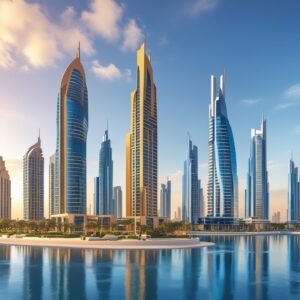
Understanding these supply chain dynamics—specifically focusing on potential constraints—is crucial for informed decision-making.
Currently, persistent global shipping challenges and regional geopolitical events introduce uncertainties regarding material availability and lead times. Monitoring import volumes, assessing port congestion, and tracking supplier performance are all vital steps. Examining the impact of fluctuating currency exchange rates on imported goods also plays a significant role.
By proactively analyzing these supply chain elements, you can better anticipate potential price fluctuations and adjust your investment strategy accordingly, ensuring a more stable and successful outcome within Dubai’s residential market.
Smart Home Technology Integration
Smart home technology integration is rapidly transforming Dubai’s residential market, and 2025 promises an even more deeply connected living experience for residents. You’ll see a significant increase in homes incorporating systems that automate daily tasks, enhance security, and optimize energy consumption – all controlled through intuitive interfaces.
The trend is moving beyond simple automation to truly intelligent ecosystems. Imagine your home adjusting lighting and temperature based on your schedule and preferences, or proactively managing energy usage to reduce costs.
You’ll likely encounter more widespread adoption of smart thermostats that learn your habits, automated blinds responding to sunlight levels, and security systems with advanced facial recognition capabilities. Furthermore, integration between appliances – like refrigerators ordering groceries when supplies are low – is becoming increasingly common, streamlining daily routines.
Fractional Real Estate Investing
Fractional real estate investing is a way for you to own a piece of property without needing to purchase an entire building or unit. It’s essentially like buying shares in a portfolio of properties instead of one single asset.
This approach allows you to diversify your investment and gain exposure to the Dubai residential market, even with a smaller budget. You can own a portion of a luxury apartment or villa, receiving rental income and potentially benefiting from property value appreciation – just like a traditional homeowner.
Platforms offering fractional ownership allow you to purchase as little as $5,000 worth of real estate. This means that you don’t have the financial burden of purchasing an entire unit. It’s a great way for you to start investing in property without committing a huge amount of capital upfront and with considerably less risk than buying outright.
The Role of Government Policy
With government policy shaping Dubai’s residential market significantly, it’s crucial to understand how decisions are being made.
Recent regulations concerning property development have a direct impact on supply – and therefore, pricing – within the city’s neighborhoods. New zoning laws, for instance, can limit construction in certain areas, creating scarcity and driving up demand.
The government’s focus on sustainable urban planning also plays a role. Initiatives promoting green building standards and mixed-use developments are influencing where new residential projects are permitted, favoring locations closer to commercial centers and public transport hubs.
Moreover, policies related to foreign investment are key. Changes in visa regulations or property ownership rules can dramatically affect the flow of capital into the market, impacting both supply and demand dynamics.
For example, adjustments to residency requirements for investors have been a recurring theme, influencing the types of properties sought after – luxury apartments versus family-friendly villas.
It’s clear that the government’s actions aren’t just about building more homes; they are actively managing the residential landscape of Dubai, and these decisions will continue to shape what you see in 2025.
Guiding Volatility – Risk Management
After considering recent shifts in Dubai’s property market, understanding volatility is paramount.
This requires a proactive approach to risk management when making investment decisions.
Fluctuations in interest rates and global economic uncertainties present potential challenges for buyers and investors alike. A keen awareness of these dynamics can significantly mitigate possible losses.
To effectively navigate this volatility, focus on diversification within your portfolio.
Consider spreading investments across different property types – apartments, villas, commercial spaces – and locations throughout Dubai. This reduces the impact if one sector experiences a downturn. Also, closely monitor market trends through reliable data sources and expert analysis.
Proactive due diligence combined with a flexible strategy is key to successfully managing risk in Dubai’s residential market—allowing you to capitalize on opportunities while safeguarding your investment.
Dubai’s Residential Market: What 2025 Holds – A Glimpse into a Dynamic Future
The shifting sands of Dubai’s real estate landscape suggest significant evolution, and those paying attention will reap considerable rewards.
Current trends indicate continued demand for luxury residences coupled with a growing interest in sustainable living and community-focused developments. Economic diversification efforts beyond oil and gas – particularly in tourism and technology – are fueling this growth, creating a robust market driven by both local investment and international buyers seeking premium lifestyles. Supply is expected to increase across various segments, though carefully planned projects focusing on innovation and quality will undoubtedly stand out.
Proactive investors who understand these emerging priorities—such as waterfront properties, smart homes, and locations near burgeoning business districts—are poised for substantial returns. Delaying investment simply means missing out on capitalizing on this momentum. Strategic foresight and a commitment to understanding the evolving needs of residents are key to success in this dynamic market.
Don’t wait for the forecast to solidify; explore Dubai’s residential opportunities today. Secure your position within this thriving hub, building wealth and shaping a future defined by luxury, innovation, and unparalleled lifestyle potential.
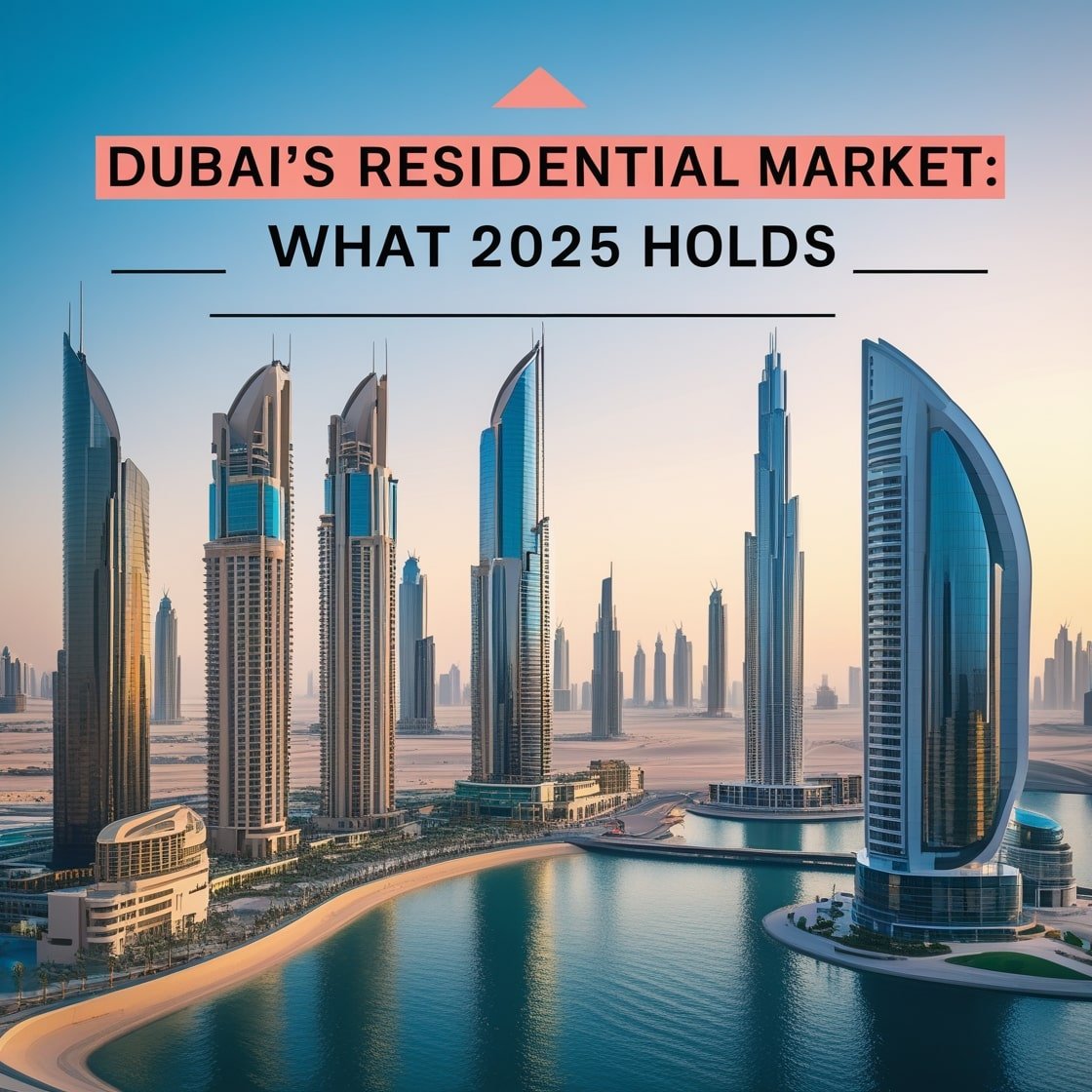
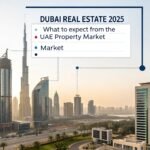

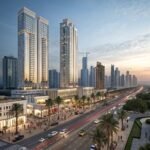
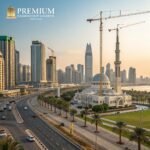
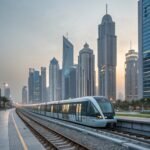
Leave a comment